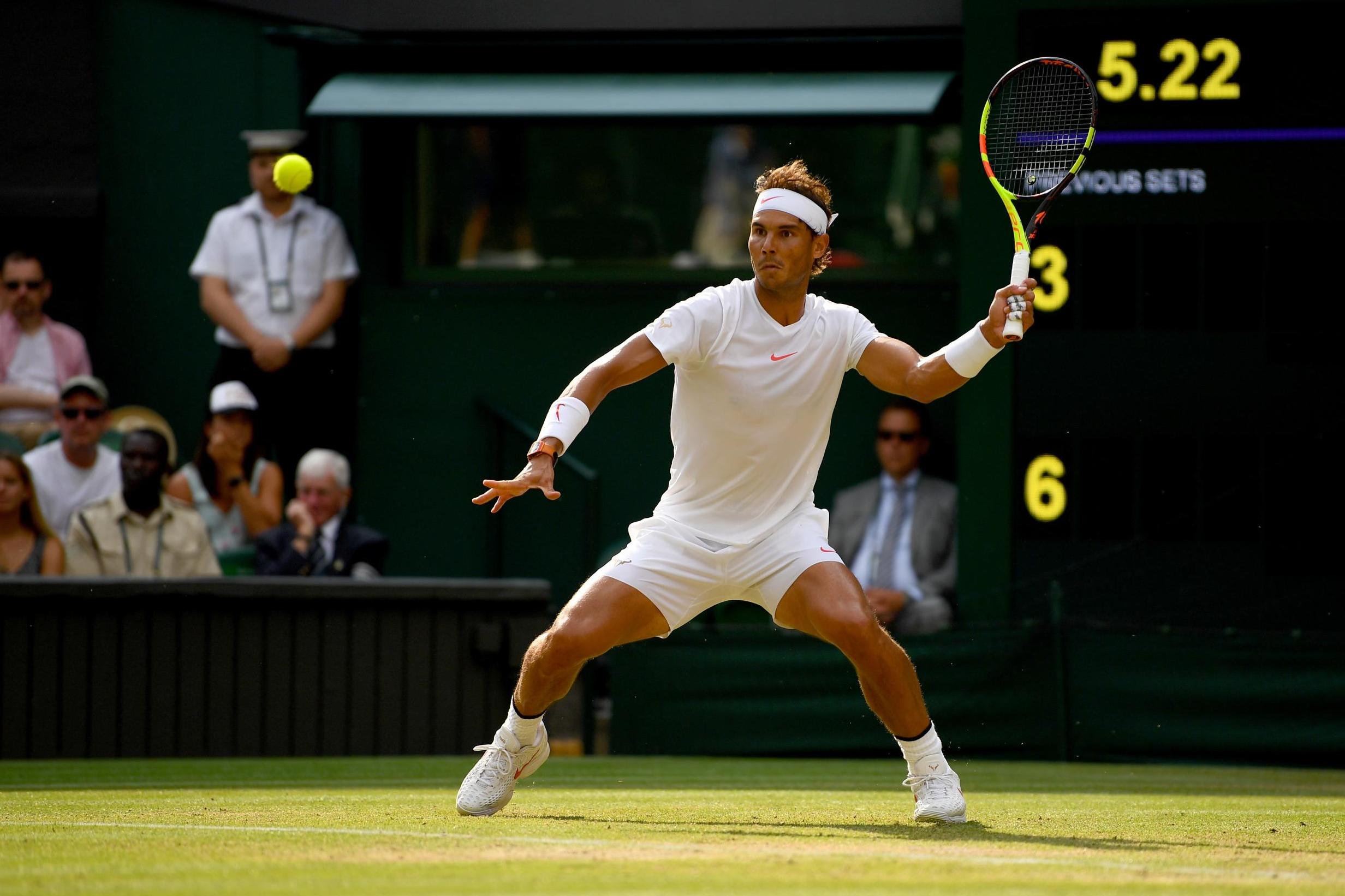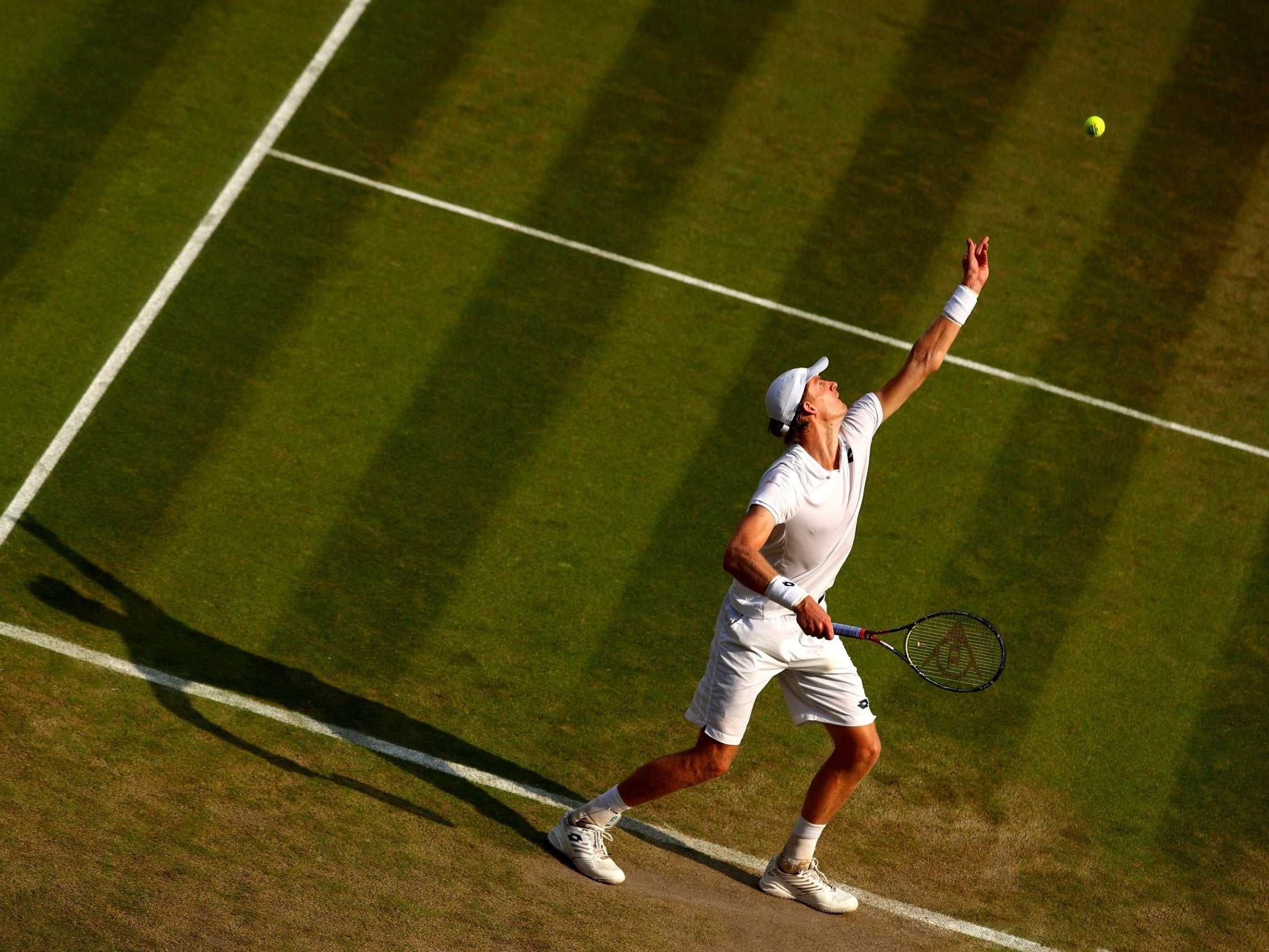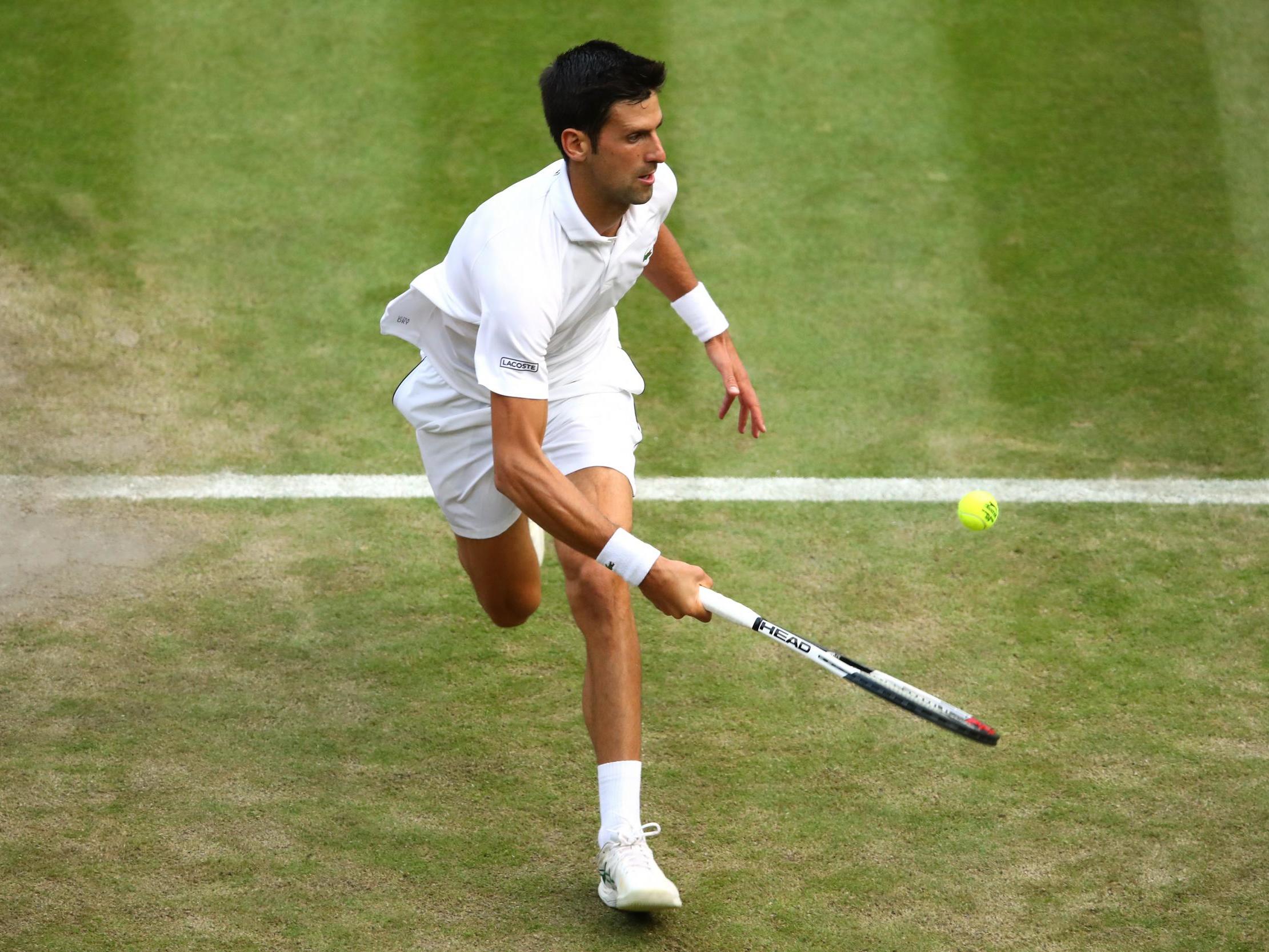Wimbledon 2018: Juan Martin del Potro vs Rafael Nadal the pick of the bunch from men's quarter-finals
The Argentine stands in the way between Nadal and a spot in the semi-finals of the Wimbledon Championships

Your support helps us to tell the story
From reproductive rights to climate change to Big Tech, The Independent is on the ground when the story is developing. Whether it's investigating the financials of Elon Musk's pro-Trump PAC or producing our latest documentary, 'The A Word', which shines a light on the American women fighting for reproductive rights, we know how important it is to parse out the facts from the messaging.
At such a critical moment in US history, we need reporters on the ground. Your donation allows us to keep sending journalists to speak to both sides of the story.
The Independent is trusted by Americans across the entire political spectrum. And unlike many other quality news outlets, we choose not to lock Americans out of our reporting and analysis with paywalls. We believe quality journalism should be available to everyone, paid for by those who can afford it.
Your support makes all the difference.No player would want to take on Rafael Nadal in less than peak condition, but Juan Martin del Potro will go into his quarter-final against the world No 1 here on Wednesday having appeared to struggle physically through his fourth-round match against Gilles Simon.
Del Potro’s meeting with the Frenchman was called off for the day because of bad light late on Monday evening after Simon had kept his hopes alive by winning the third set. Del Potro duly completed a 7-6, 7-6, 5-7, 7-6 victory when the match resumed on Tuesday, but the Argentinian looked flat and lacking in inspiration.
Simon led 3-1 in the fourth set before Del Potro fought back to 5-4 and served for the match. However, the Frenchman saved four match points and broke back to level at 5-5 before taking the set into another tie-break.
Del Potro went 3-1 down in the tie-break but recovered to 5-5 and then created his fifth match point with an ace, which he converted by forcing Simon into a backhand error.
“Hopefully I will feel good for tomorrow,” Del Potro said afterwards as he looked ahead to a third day in a row on court. “I’ve been having treatment already and I think I will be in good condition. My body feels OK, though I feel a little bit tired.”
Nadal has won 10 of his 15 meetings with Del Potro. The Spaniard dropped only seven games when he beat the world No 4 in the semi-finals at last month’s French Open.
“It will be a different match to the one we played in Paris,” Del Potro promised. “If I want to beat him, I have to come to the net very often, play hard with my forehands and backhands and try to take all my chances.”
Asked what he most admired about Nadal, Del Potro said: “He’s a fighter. He’s always trying to be positive and thinking about the next ball. It doesn’t matter if he misses or not.”
He added: “I don’t know whether I’m a better player than I was a few years ago, but I’m No 4 in the world, which is my highest ranking in my career. That seems a good signal for me.”
Nadal and Roger Federer are still on course to meet in the final here for the first time since the Spaniard won one of the greatest matches in history in 2008.

For the first time at the current tournament Federer will not play on Centre Court when he faces Kevin Anderson in Wednesday’s first quarter-final on Court One. Federer has won all four of his previous matches against the South African without dropping a set, but this will be the first time they have met since 2015.
Anderson will be playing in the quarter-finals here for the first time, having lost in the fourth round in three of the last four years.
“I think it’s a pretty exciting opportunity,” Anderson said. “I feel like a lot of aspects of my game can give him a lot of trouble. I’m a big player with a big serve. I’m going to have to really take it to him. At the same time I have to try to treat it like another tennis match. It will be only my second time out on Centre Court. He’s played there a few more times than that.
He added: “I feel like I’m playing some of the best tennis of my career. When I’m doing that, I think I’m a very dangerous player. I think people can see that and can feel that.”

The first quarter-final on Centre Court will bring together two players who have been rebuilding their game after taking off the last six months of 2017 to recover from injury. Kei Nishikori won two of his first three meetings with Novak Djokovic, but the Serb has since beaten him 12 times in a row.
“I like my chances in the match against Nishikori,” Djokovic said. “I played very well at Queen’s coming into Wimbledon. So far my four matches have been really, really good for me. I haven’t spent too much time on the court. I feel physically and mentally ready, fit, positive.”
Djokovic said Nishikori had shown mental toughness in beating Ernests Gulbis in the fourth round. “That’s something that is very characteristic for him,” Djokovic said. “He’s established, a top player. He struggled with injuries a little bit, but whenever he’s fit, he can really beat anybody in any tournament. He has proved that in the past.
“He’s a big-match player. He doesn’t get affected too much by the big occasions. To the contrary, he actually delivers his best. That’s what I expect him to do.”

Nishikori said that it would be “a new game” to face Djokovic on grass. “I always enjoy playing against him,” he said. “It’s always a big challenge. Maybe I don’t have a good record against him, but I always enjoy playing him.”
John Isner will take on Milos Raonic in a contest between two of the game’s biggest servers in the second quarter-final on Court One.
Isner has beaten Raonic in three of their four matches, but their head-to-head record suggests their meeting here could be close. Of the nine sets they have played, seven have gone to tie-breaks. In their four matches there have been only six breaks of serve, four of them by Isner.
“There’s a good chance it’s going to come down to a few points here and there,” Isner said. “He serves exceptionally well. He does other things very well, too. He attacks well. He looks for his forehand a lot, which is effective on this surface.
“If one of us gets a crack, a few chances, we’re going to have to take it. It could very well be a close match.”
Join our commenting forum
Join thought-provoking conversations, follow other Independent readers and see their replies
Comments